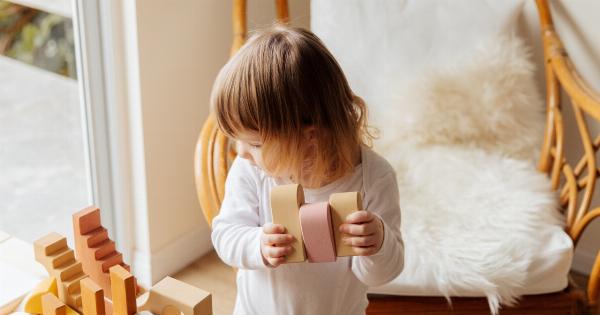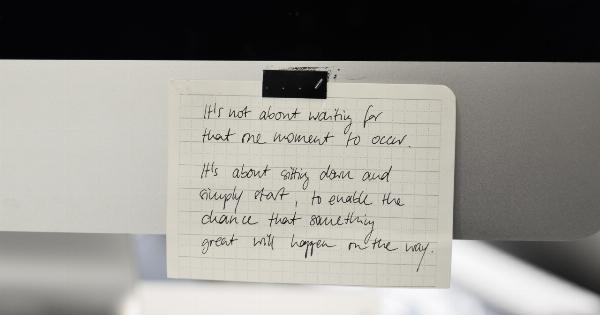When it comes to raising a child, the habits of a father can have a significant impact on their future. Many people focus on the mother’s role in their child’s development, but the father’s role is just as vital.
The following are 30 habits of future fathers that can hurt their child’s development.
Habit 1: Not Spending Enough Time with Their Child
Children need quality time with their parents. When a father doesn’t spend enough time with their child, it can harm their emotional and mental development.
A father who spends time with their child can provide emotional support, help with homework, and teach important values.
Habit 2: Being Overprotective
Overprotective fathers can create a lack of independence in their children. Children need to learn how to handle situations on their own and make mistakes.
Overprotective fathers can hinder their child’s growth by not allowing them to take risks and make decisions.
Habit 3: Being Too Strict
Discipline is important, but fathers who are too strict can create anxiety and stress in their children. When children are afraid of their father’s reaction, they may hide their mistakes or avoid asking for help.
Too much control can harm the relationship between the father and child.
Habit 4: Not Listening
Children need to be heard. Fathers who do not listen to their child’s thoughts and feelings can create a sense of invalidation. Children may feel disrespected or unheard, leading to communication barriers and a lack of trust.
Habit 5: Not Showing Love and Affection
A child needs to feel loved and affection from their father. Fathers who do not show love and affection can create emotional distance and a lack of empathy.
Children who grow up without feeling love may struggle to maintain relationships or have difficulty expressing themselves emotionally.
Habit 6: Comparing Their Child to Others
Fathers who compare their children to others can create feelings of inadequacy and low self-esteem. Each child is unique, and comparing them to others can harm their self-worth and create unnecessary competition.
Fathers need to focus on their child’s strengths and help them develop their talents.
Habit 7: Not Setting Boundaries
Children need boundaries. Fathers who do not set clear boundaries can create confusion and anxiety in their children’s lives.
Children need structure and discipline, and fathers need to provide guidance and boundaries to help their children understand what is acceptable behavior.
Habit 8: Being Inconsistent
Inconsistency can create confusion in a child’s life. Fathers who are not consistent in their parenting can create indecisiveness and uncertainty in their children. Children need stability and consistency to feel safe and secure.
Habit 9: Not Apologizing When Wrong
Fathers are not perfect, and they make mistakes too. When a father does not apologize when wrong, it can create a sense of injustice. Children need to see their fathers take responsibility for their actions to learn the importance of accountability.
Apologizing can help repair damaged relationships and build trust.
Habit 10: Not Setting a Good Example
Fathers are role models. When fathers do not set a positive example, it can harm their children’s development.
Children learn from their parents’ behavior, and fathers need to demonstrate positive values such as honesty, kindness, and respect to guide their children down the right path.
Habit 11: Being Too Competitive
Healthy competition can be beneficial, but fathers who are too competitive can create a lack of sportsmanship and create tension. Children need to learn how to lose gracefully and win with humility.
Fathers need to foster a sense of sportsmanship and fair play to teach their children the importance of teamwork and respect for others.
Habit 12: Being Physically or Verbally Abusive
Verbal or physical abuse can cause long-term emotional and mental trauma in children. Fathers who engage in abusive behavior can harm their children’s sense of self-worth and create a pattern of violence in their lives.
Children who grow up in abusive households may struggle with relationships and are more likely to engage in violent behavior themselves as adults.
Habit 13: Not Being Present
A child needs their father’s presence. Fathers who are not present can create a sense of abandonment and neglect in their children’s lives. Children need to feel that their fathers are there for them emotionally and physically.
Fathers who are not present may struggle to build trust and a healthy relationship with their children.
Habit 14: Not Encouraging Individuality
Children need to express themselves and develop their individuality. Fathers who do not encourage their children’s interests and unique personalities can create a sense of conformity and stifled creativity.
Fathers need to foster a sense of individuality and appreciate their children for who they are.
Habit 15: Not Communicating with Their Child’s Mother
Communication between parents is vital for a child’s development. Fathers who do not communicate with their child’s mother can create confusion and inconsistency in their children’s lives.
Children need their parents to be on the same page to create a sense of stability and guidance.
Habit 16: Being Distracted
Fathers who are distracted can miss important moments in their children’s lives. Children need their father’s undivided attention to feel valued and appreciated.
Fathers need to be present and engaged in their children’s lives to create lasting bonds and memories.
Habit 17: Not Teaching Important Life Skills
Fathers are role models for their children. Teaching important life skills such as financial management, cooking, and cleaning can benefit a child throughout their entire life.
Fathers need to prepare their children for adulthood by providing the tools and skills needed to succeed in the world.
Habit 18: Not Providing Emotional Support
Children need emotional support. Fathers who do not provide emotional support can create a sense of emotional neglect. Children need their father’s love and support to feel safe and secure.
Fathers need to be patient and understanding to create a strong emotional bond with their children.
Habit 19: Not Being Involved in Their Child’s Education
Education is essential for a child’s future. Fathers who are not involved in their child’s education can miss important opportunities to help their children succeed.
Fathers need to be engaged in their child’s schooling to provide support and guidance to help them reach their potential.
Habit 20: Not Valuing Self-Care
Self-care is essential for parents. Fathers who do not value self-care can become stressed and burnt out, which can harm their children’s development.
Fathers need to take care of themselves, both mentally and physically, to create a healthy and happy family environment.
Habit 21: Not Demonstrating Empathy
Empathy is critical for healthy relationships. Fathers who do not demonstrate empathy can create emotional distance and a lack of understanding in their children’s lives.
Fathers need to be compassionate and understanding to help their children develop empathy and strong emotional bonds.
Habit 22: Being Critical
Fathers who are overly critical can harm their children’s self-esteem. Children need to feel that their efforts are appreciated and valued.
Fathers need to be constructive in their criticism and provide positive feedback to help their children grow and develop.
Habit 23: Not Celebrating Achievements and Milestones
Celebrating milestones and achievements is essential for a child’s self-esteem. Fathers who do not celebrate their child’s achievements can create a lack of appreciation and recognition.
Children need to feel that their hard work and efforts are recognized and appreciated by their father.
Habit 24: Not Encouraging Physical Activity
Physical activity is essential for a child’s development. Fathers who do not encourage physical activity can create a sedentary lifestyle and a lack of motivation.
Children need to stay active to develop strong muscles and bones and for their mental health.
Habit 25: Not Reading to Their Child
Reading is critical for a child’s literacy skills. Fathers who do not read to their child can miss important opportunities to help them develop reading skills and a love for literature.
Fathers need to read to their children to foster a love of learning and imagination.
Habit 26: Not Providing Positive Role Models
Role models are essential for children. Fathers who do not provide positive role models can create confusion and uncertainty in their children’s lives.
Fathers need to provide positive examples of successful and caring role models to guide their children’s values and behavior.
Habit 27: Not Encouraging Friendships
Friendships are essential for social development. Fathers who do not encourage their children to make friends can create social isolation and a lack of social skills.
Fathers need to encourage their children to build positive friendships and social connections to help them succeed in life.
Habit 28: Not Providing Balanced Nutrition
Proper nutrition is essential for a child’s physical and mental development. Fathers who do not provide balanced nutrition can create health problems and a lack of energy in their children’s lives.
Fathers need to prioritize healthy eating habits to promote good health and strong immune systems.
Habit 29: Not Encouraging Creativity
Creativity is essential for a child’s imagination and problem-solving skills. Fathers who do not encourage creativity can create a lack of inspiration and conformity in their children’s lives.
Fathers need to foster creativity and innovation to help their children think outside the box and develop unique solutions to problems.
Habit 30: Not Providing Career Guidance
Career guidance is essential for a child’s future. Fathers who do not provide career guidance can create a lack of direction and uncertainty in their children’s lives.
Fathers need to help their children explore their interests and passions to help them discover their true calling in life.































